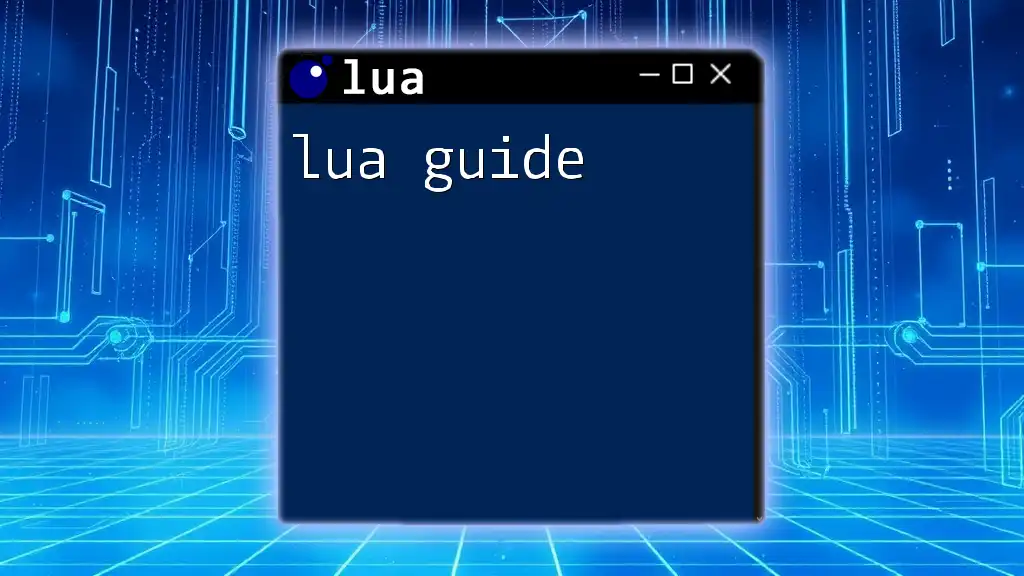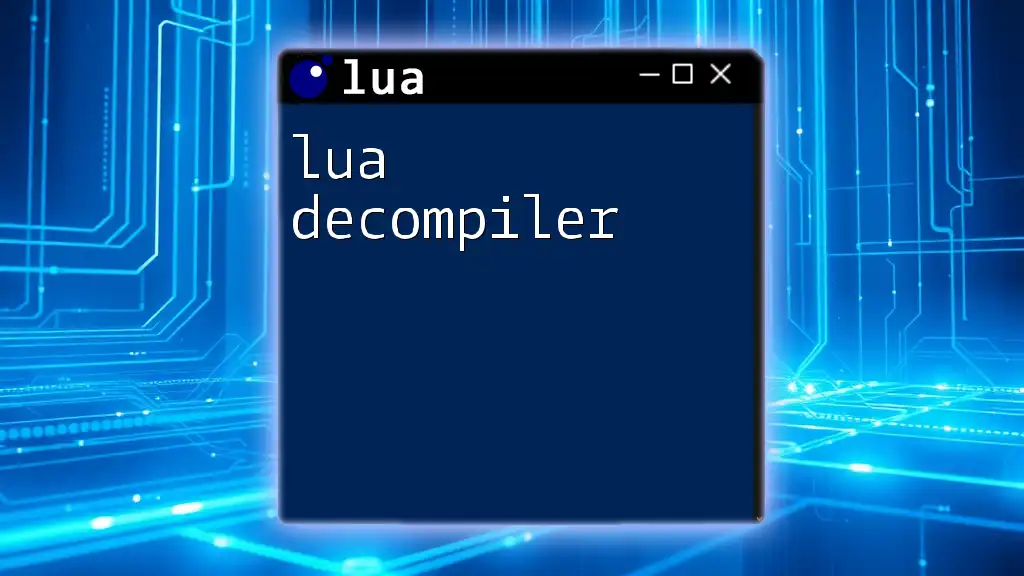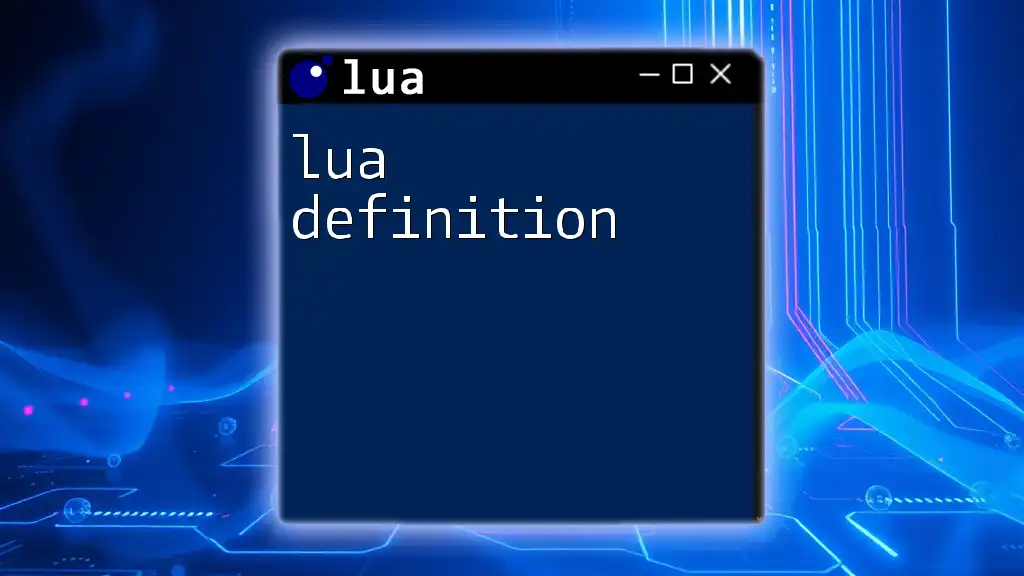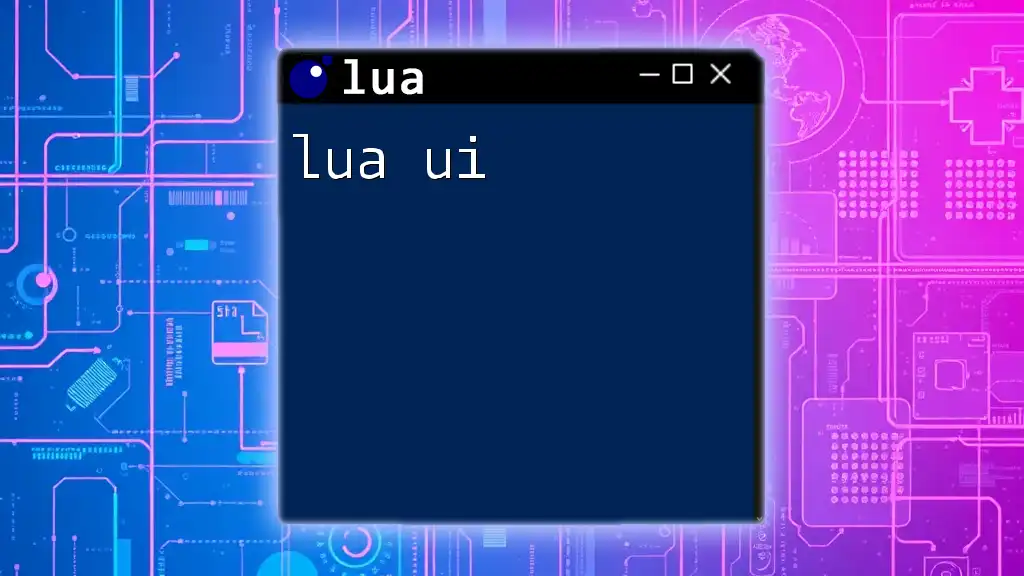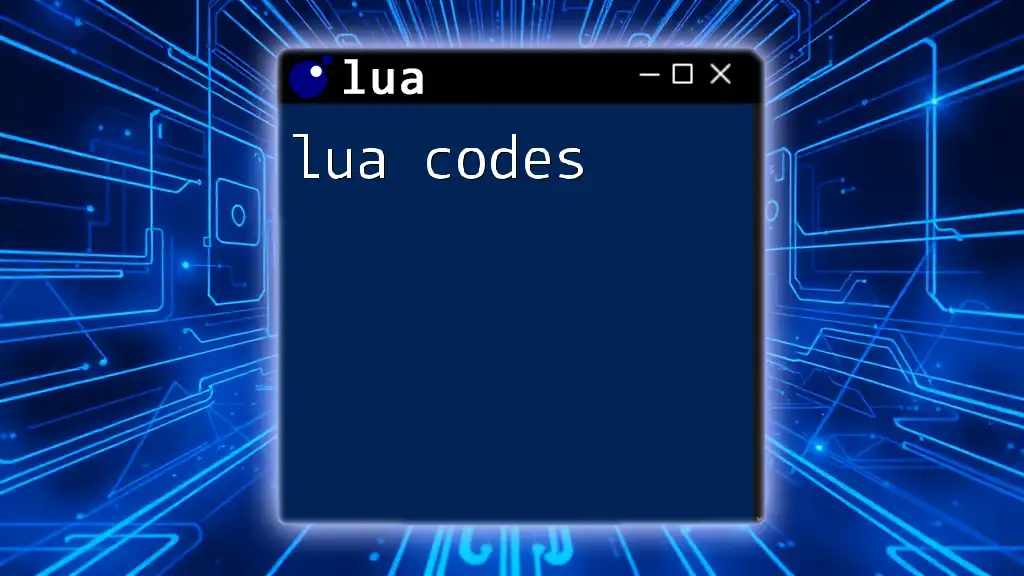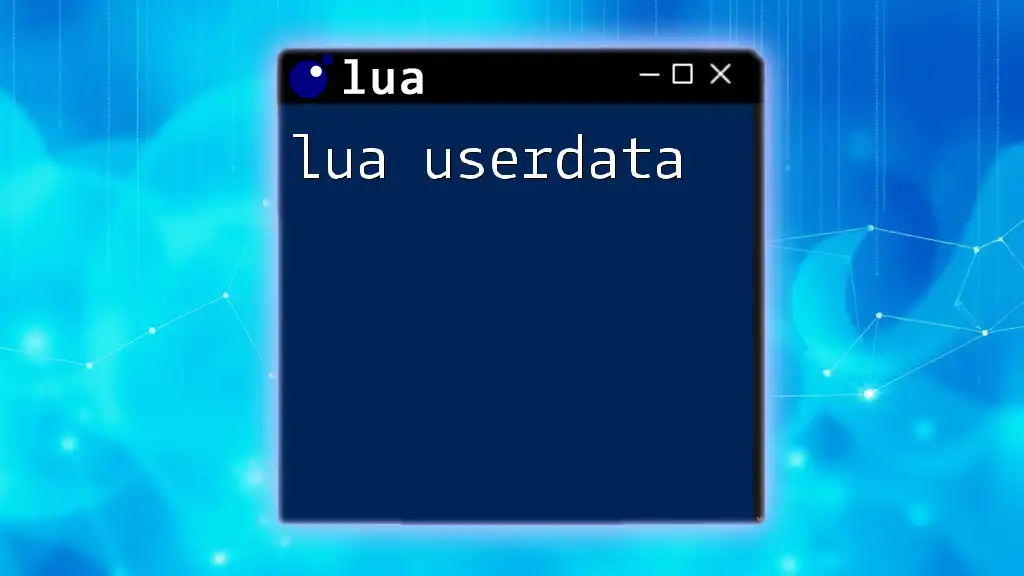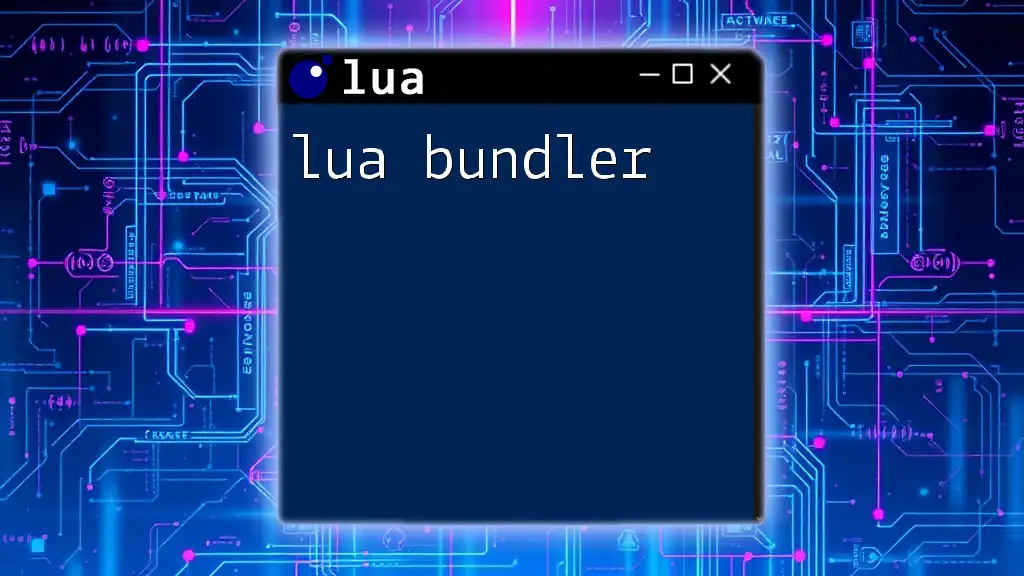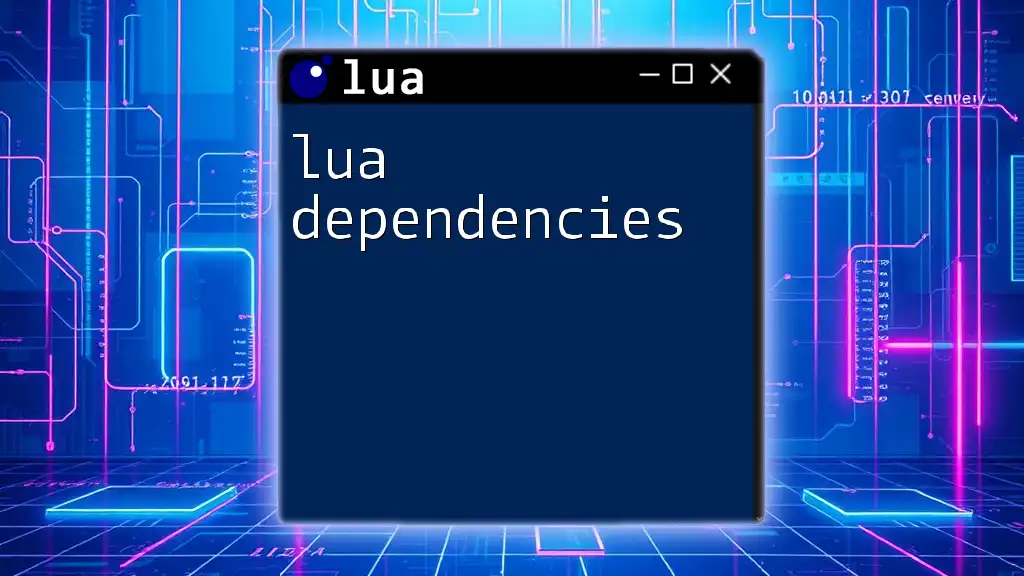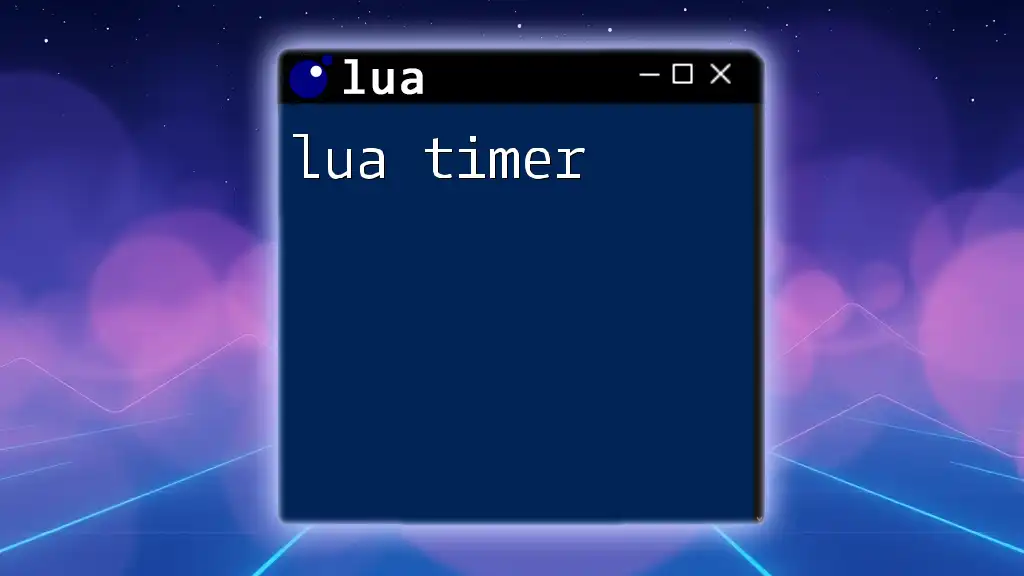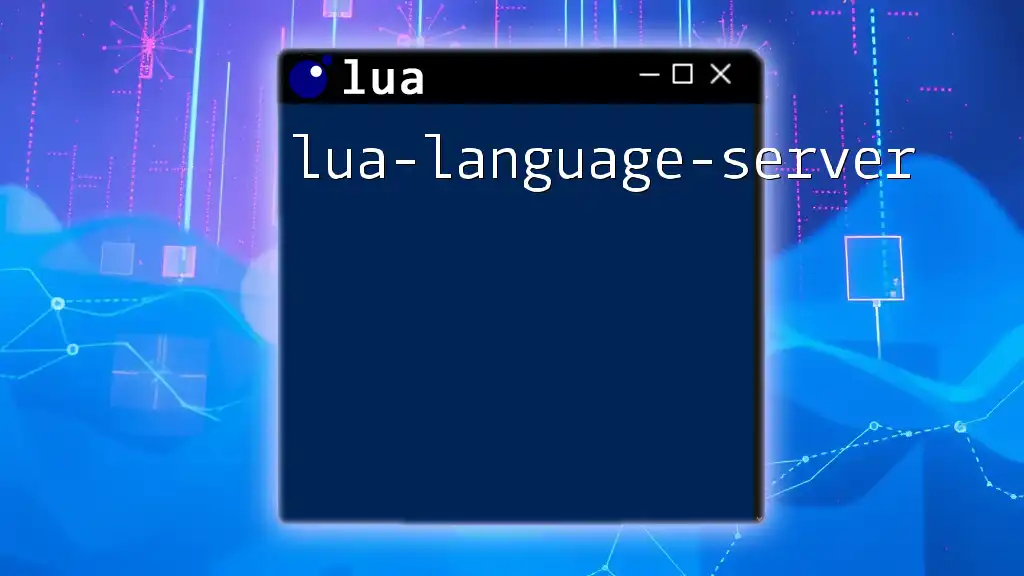In this Lua guide, we’ll provide a brief overview of essential Lua commands to help you quickly grasp the basics of this powerful scripting language. Here's a simple example of defining a function and calling it:
function greet(name)
print("Hello, " .. name .. "!")
end
greet("World")
Introduction to Lua
What is Lua?
Lua is a lightweight, high-level programming language designed primarily for embedded systems and gaming. It was created in the early 1990s in Brazil and has become a popular choice for applications needing flexibility and ease of use. Key features include its small footprint, efficient execution, and extensive support for data description via tables.
Why Learn Lua?
Learning Lua opens up various opportunities, especially in game development, embedded systems, and automation scripting. Lua is revered for its simplicity and versatility, making it an excellent first programming language or a handy tool for seasoned developers. Advantages of Lua include:
- Seamless integration with other programming languages
- Dynamic typing and powerful data structures
- Extensive libraries for rapid development
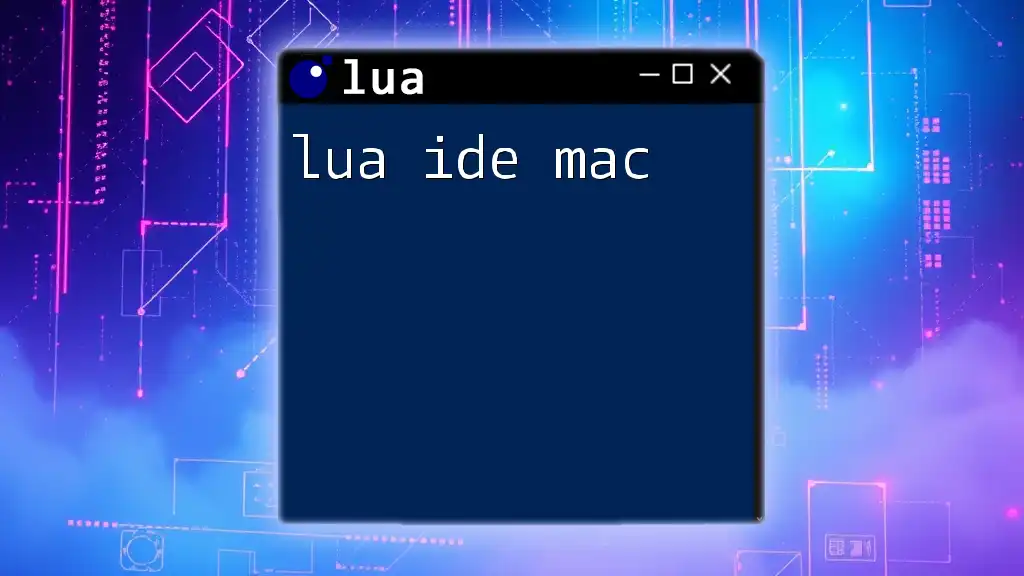
Setting Up Your Lua Environment
Installing Lua
To get started with Lua, you first need to install it on your system. Here is a brief guide for different operating systems:
- Windows: Download the LuaBinaries from the Lua website and extract it. Add the `lua.exe` location to your system's PATH.
- macOS: Use Homebrew to install Lua with the command:
brew install lua - Linux: Most distributions have Lua in their package managers. Use:
sudo apt-get install lua5.3
Using Lua Interactive Shell
Once installed, you can start the Lua interactive shell (REPL) by typing `lua` in your terminal. This environment allows you to run Lua commands line by line. Here’s a quick example:
print("Hello, Lua!")
The output will be:
Hello, Lua!
This demonstrates how easy it is to execute Lua commands interactively.
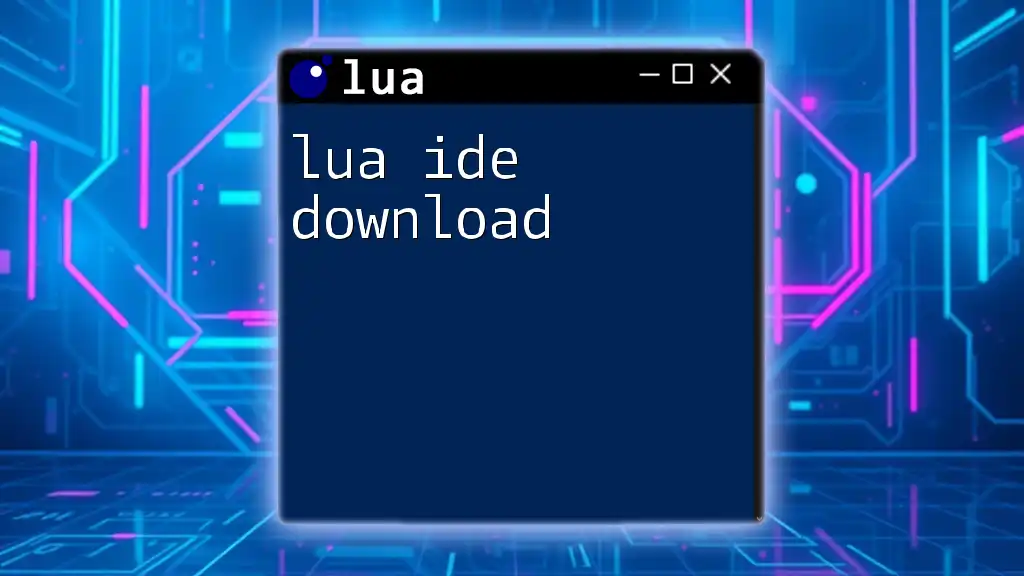
Basic Syntax and Data Types
Lua Syntax Overview
Lua's syntax is designed to be simple and minimalistic. Statements can end with a newline or a semicolon, and comments are marked by `--` for single-line or `--[[` and `--]]` for multi-line comments. For instance:
-- This is a single-line comment
--[[
This is a
multi-line comment
]]
Primitive Data Types
Lua supports several primitive data types:
- nil: Represents the absence of a value.
- boolean: Can be either `true` or `false`.
- number: Represents numerical values (both integers and floats).
- string: Represents text data.
- function: Lua treats functions as first-class citizens.
- table: The primary data structure in Lua for storing collections of data.
- userdata: Allows users to define their own data types.
Example for using different data types:
name = "Lua"
age = 28
isCool = true
print(name, age, isCool)
Type Checking and Conversion
Using the `type()` function, you can check the type of a variable. Additionally, Lua allows for type conversion, although it's mostly dynamic. For example:
print(type(3.14)) -- Outputs: number
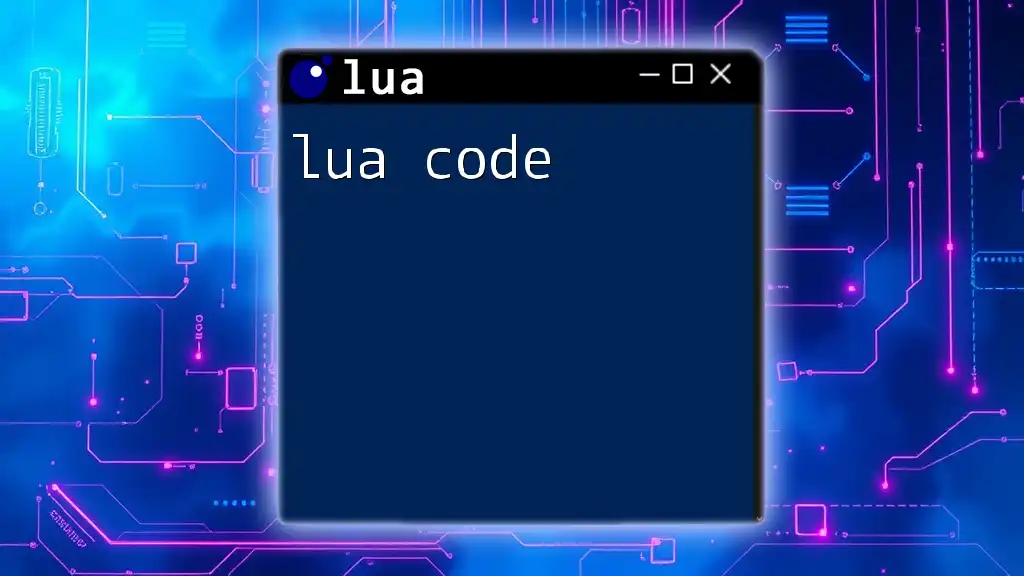
Control Structures in Lua
Conditional Statements
Lua allows conditional execution with the `if`, `then`, and `else` keywords. Here’s an example:
local x = 5
if x > 0 then
print("Positive number")
else
print("Negative number")
end
Loops in Lua
Lua provides several loop constructs:
- For Loop: Used to iterate over a range.
for i = 1, 5 do
print(i)
end
- While Loop: Continues as long as the condition is true.
local count = 0
while count < 5 do
print(count)
count = count + 1
end
- Repeat Loop: Similar to `while`, but the condition is checked after the execution.
local i = 0
repeat
print(i)
i = i + 1
until i >= 5
Break and Continue
You can control loop execution dynamically with `break` to exit and `return` to exit a function. For instance:
for i = 1, 10 do
if i == 5 then
break
end
print(i)
end
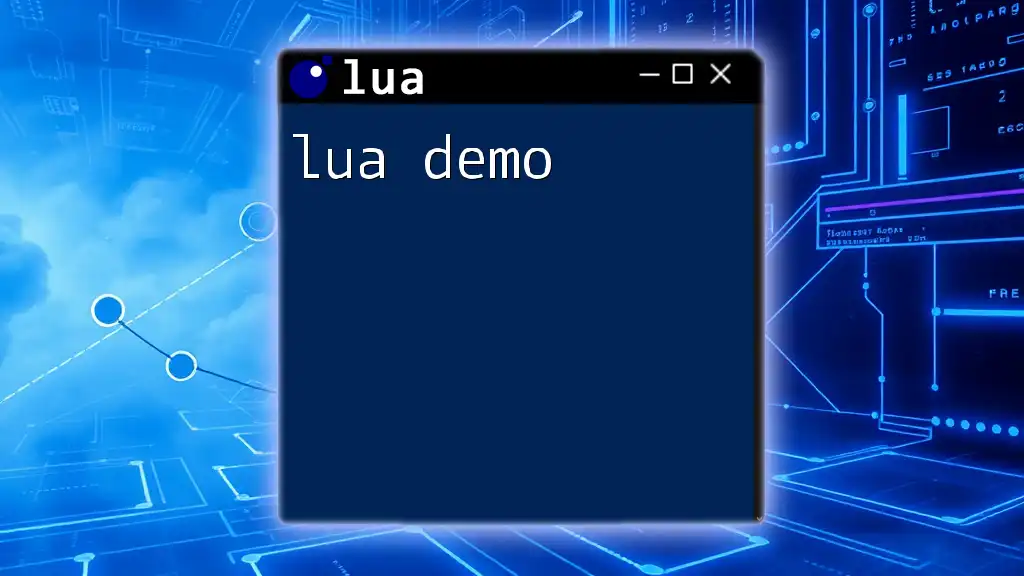
Functions in Lua
Defining Functions
Functions are defined using the `function` keyword. Here’s how to create a basic function:
function greet(name)
print("Hello, " .. name)
end
greet("World")
Function Parameters and Return Values
Functions can accept multiple parameters and return multiple values:
function sum(a, b)
return a + b
end
print(sum(5, 3)) -- Outputs: 8
Anonymous Functions and Closures
Lua supports anonymous functions, which can be assigned to variables or passed as arguments. Closures are functions that capture the local variables from their surrounding scope:
function makeCounter()
local count = 0
return function()
count = count + 1
return count
end
end
local counter = makeCounter()
print(counter()) -- Outputs: 1
print(counter()) -- Outputs: 2
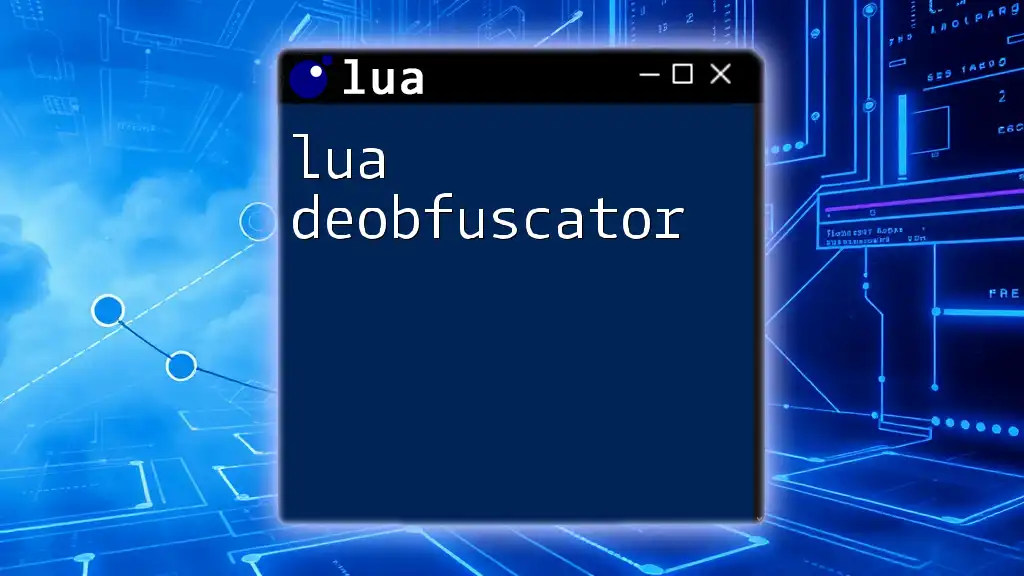
Tables: The Foundation of Lua
Understanding Tables
In Lua, tables are the fundamental data structure. They can function as arrays, dictionaries, or objects. Creating a table is simple:
local person = {name = "Alice", age = 25}
Manipulating Tables
You can easily add, remove, and access elements in a table:
-- Adding an element
person.city = "New York"
-- Accessing an element
print(person.age) -- Outputs: 25
-- Removing an element
person.age = nil
Table Functions
Lua provides several built-in functions for table manipulation:
- `table.insert()`: Adds an element.
local fruits = {"apple", "banana"}
table.insert(fruits, 2, "orange") -- Inserting "orange" at index 2
- `table.remove()`: Removes an element.
table.remove(fruits, 1) -- Removes the first element (apple)
- `table.concat()`: Joins table elements into a string.
print(table.concat(fruits, ", ")) -- Outputs: banana, orange
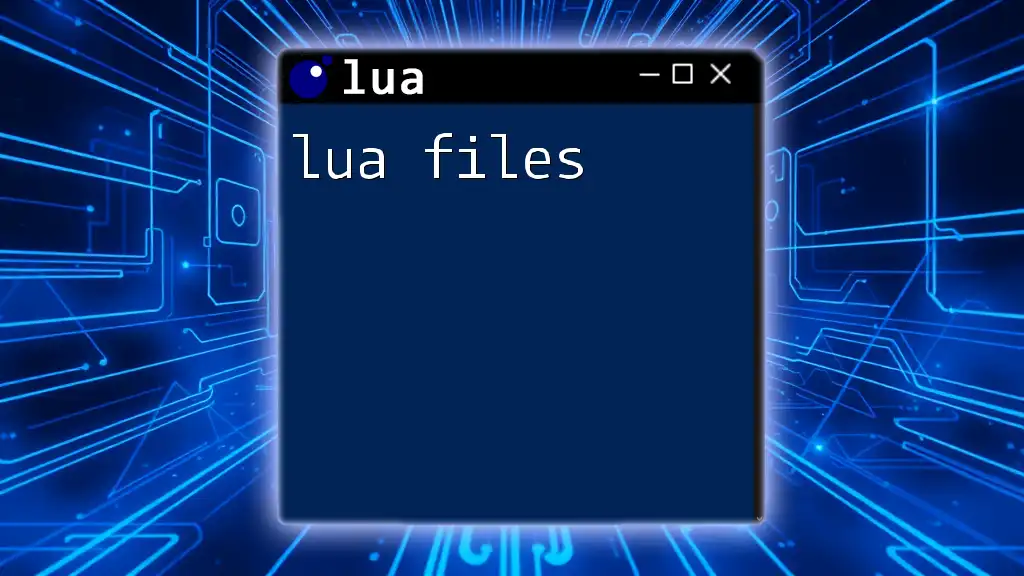
Object-Oriented Programming in Lua
Introduction to OOP in Lua
Lua's object-oriented programming (OOP) capabilities are implemented through tables and metatables. Unlike traditional OOP languages, Lua employs a prototype-based approach.
Creating Objects Using Tables
You can simulate classes using tables and functions:
Dog = {}
function Dog:new(name)
local obj = {name = name}
setmetatable(obj, self)
self.__index = self
return obj
end
function Dog:bark()
print(self.name .. " says Woof!")
end
local myDog = Dog:new("Rex")
myDog:bark() -- Outputs: Rex says Woof!
Inheritance and Prototypal Inheritance
Inheritance is achieved by setting metatables:
Beagle = Dog:new()
function Beagle:bark()
print(self.name .. " the Beagle barks!")
end
local myBeagle = Beagle:new("Buddy")
myBeagle:bark() -- Outputs: Buddy the Beagle barks!
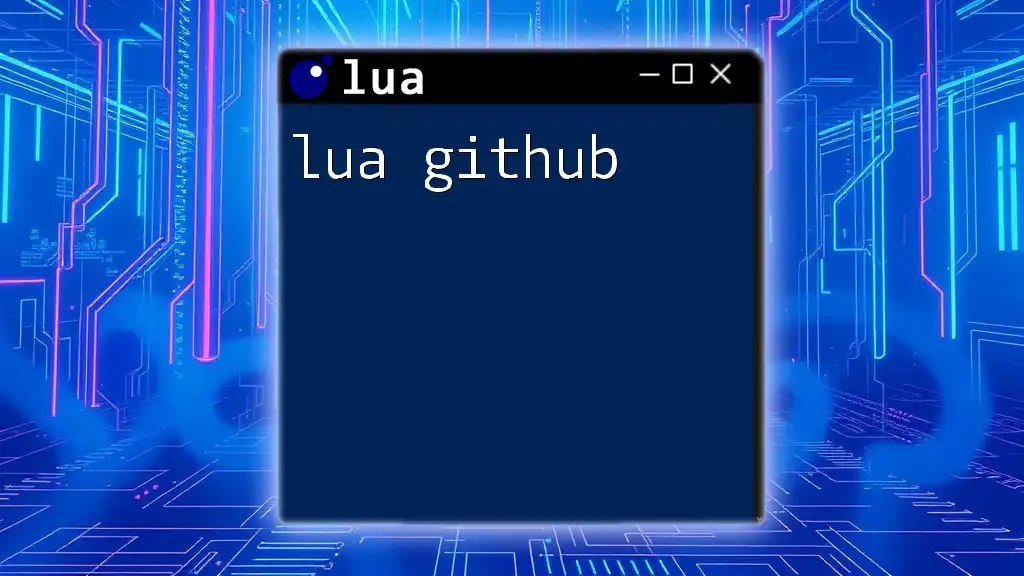
Error Handling in Lua
Understanding Errors in Lua
In Lua, errors can be categorized into syntax errors and runtime errors, affecting how your code executes.
Using pcall and xpcall
Lua provides `pcall` and `xpcall` for error handling. These functions allow you to call a function in protected mode:
local status, err = pcall(function() error("Test error") end)
if not status then
print("Error occurred: " .. err)
end
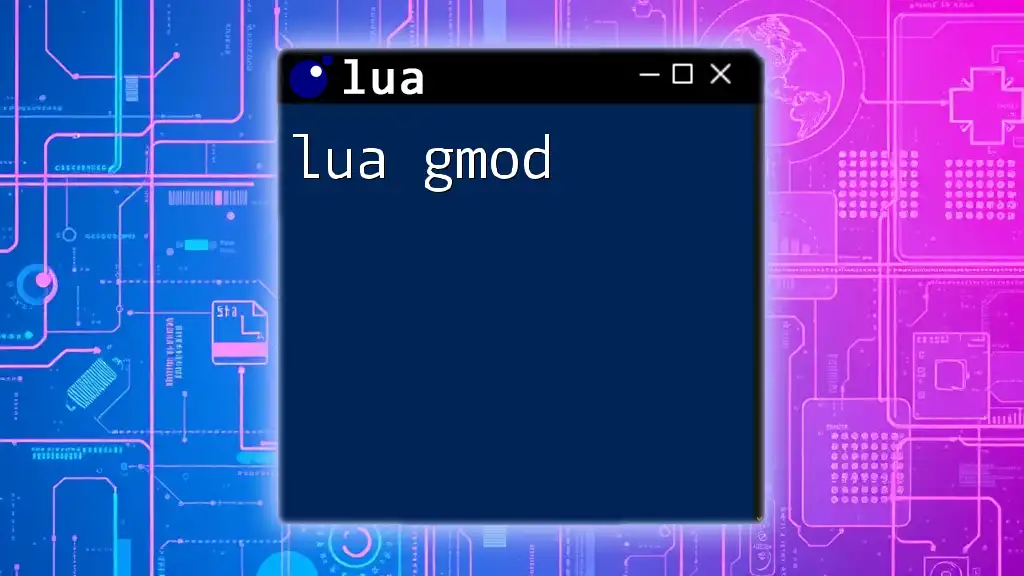
Best Practices for Writing Lua Code
Code Organization and Structure
Keeping your code modular is essential for readability and maintenance. Use functions to encapsulate logic and avoid repetition.
Readable Code Practices
Employing clear naming conventions and adequate comments helps make your code understandable. For example:
-- Function to calculate the area of a rectangle
function calculateArea(length, width)
return length * width
end
Performance Optimization Tips
Avoid frequent memory allocation and utilize local variables for better performance. When working with large tables, consider preallocating space:
local myList = {}
for i = 1, 100 do
myList[i] = i * 2
end
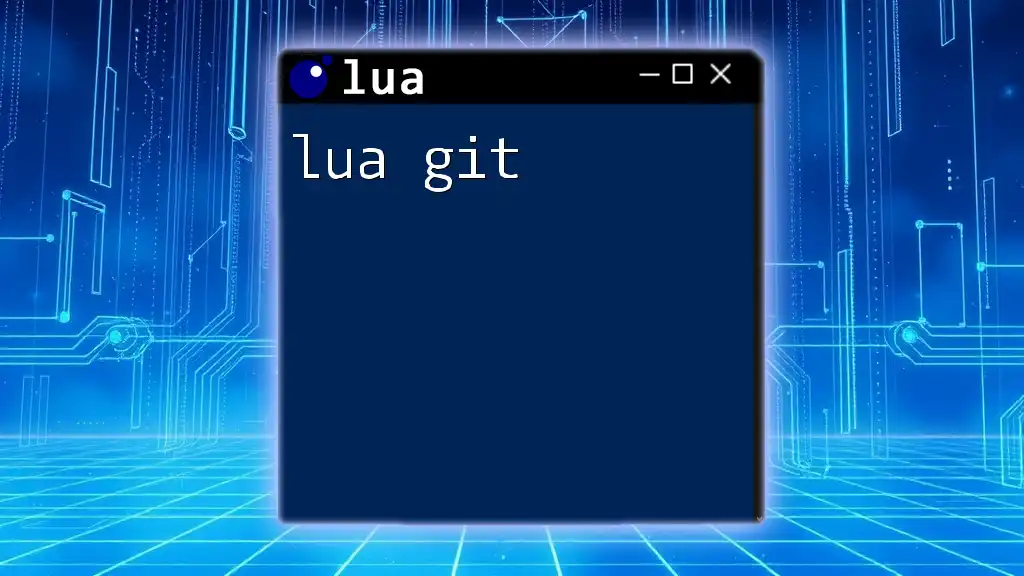
Practical Applications of Lua
Leveraging Lua in Video Game Development
Lua is a favored language in game development due to its lightweight nature and ease of integration with other languages. Notable games and engines, such as Corona SDK and Love2D, utilize Lua for scripting gameplay mechanics.
Scripting and Automation with Lua
Beyond gaming, Lua is often used for quickly scripting tasks in software applications due to its straightforward syntax. It allows developers to automate repetitive tasks efficiently.
Embedded Systems Integration
Lua is also widely adopted in embedded systems, where its small size and speed make it ideal for control scripts and configuration files for hardware projects.
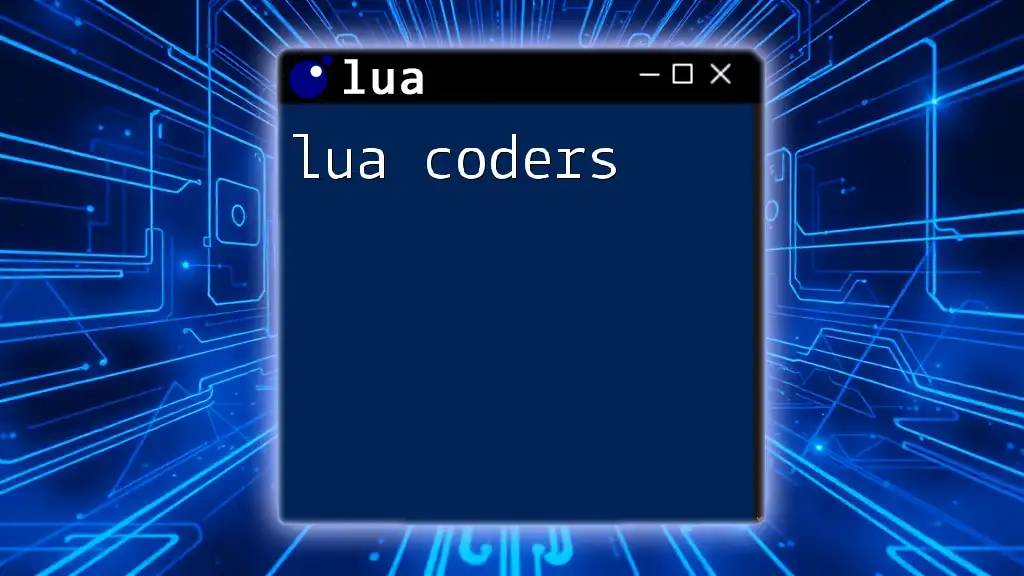
Conclusion
Lua's simplicity and flexibility make it a powerful language for beginners and advanced developers alike. By understanding its fundamental concepts and best practices, you can leverage Lua effectively for a variety of applications. As you progress, practice regularly and explore different domains that use Lua, whether in game development, embedded projects, or scripting.
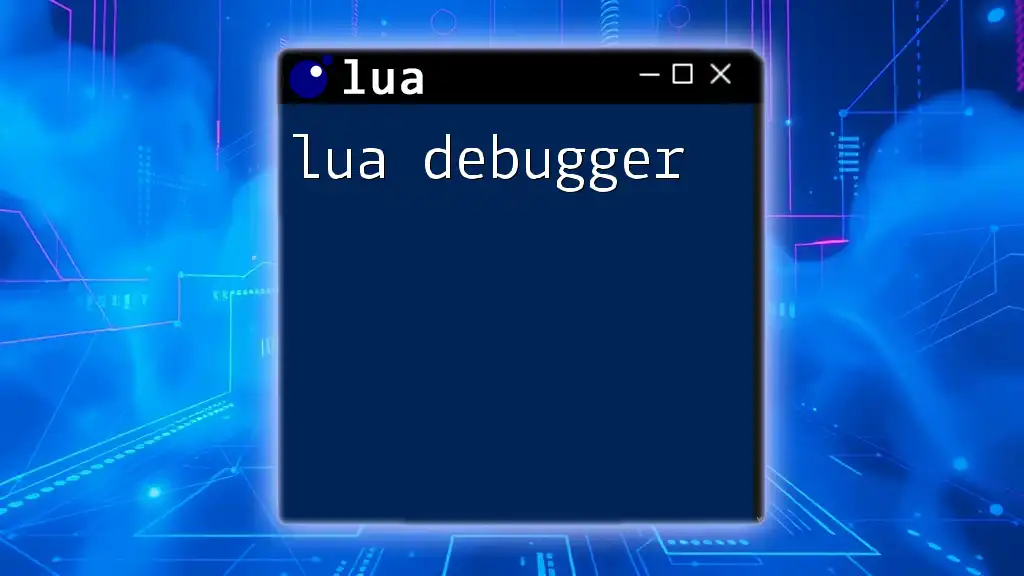
Additional Resources
For further learning, consider exploring Lua documentation, accessing helpful books, and engaging with communities of Lua developers to expand your knowledge and skills well beyond this guide.

